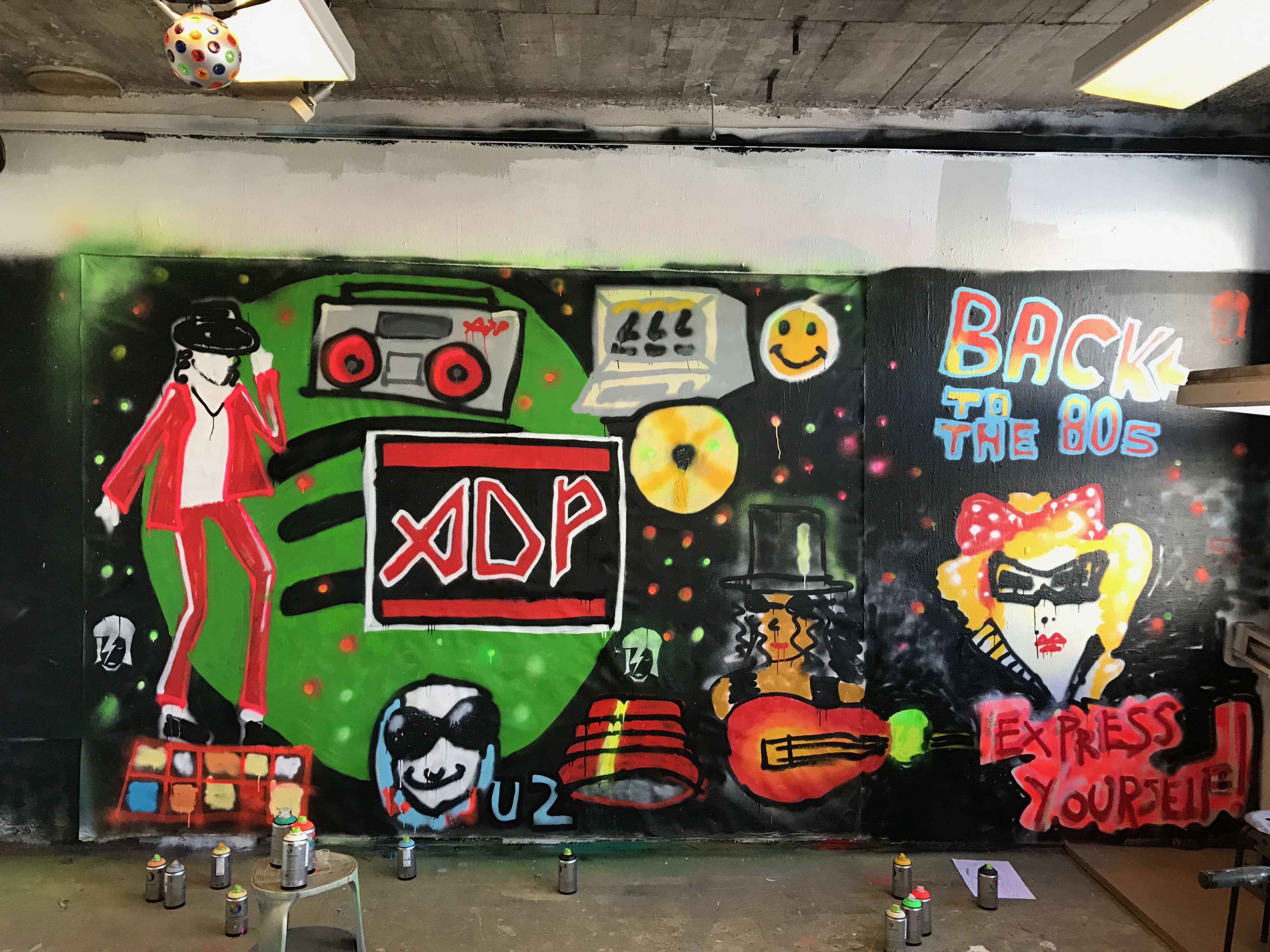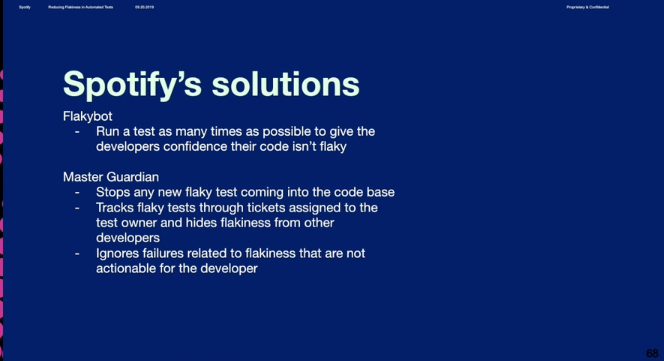I’m leaving the band, I’m going solo.
Thanks for these 6 years Spotify,
lots of fun, lots of hard work, so many lovely people,
so much done and so much learned.
Here’s some of the most important stuff I did,
and learned on this tour,
which I will bring with me on my new tour,
as a contractor, trainer and author.

I joined as an agile coach,
but ended up driving coaches out of the teams,
and managers into the teams: scrum master as manager,
the missing piece in the Spotify model (never but a dream anyway).
First I had to become a Spotify manager,
transforming an org and myself on the way,
leaving me, the engineer, way behind,
only to to come back, in the end,
I think.
I had once written:
”And yes. There are people too”,
now people became front and center,
30, 40, 50, 60, 70, 80, 90, 100, 110, 120,
from all over the world, all this knowledge, all these needs,
their wellbeing,
being well treated, feeling included, having impact, growing a career;
having fun,
it had to be,
the baseline,
we, the managers, became pilots:
checklists & routines, never to miss out,
authoritative for safety,
informative and engaging, to get people on the ride,
always ready if something fails.

I had once stated:
”Stop development talks”,
inspired by Scrum guru Jeff Sutherland,
now I had them every week (called one on ones),
filling the calendar, for everyone,
thousands of hours,
to me, and my managers,
they became,
the essence of navigating a relationship based org,
help people grow,
for good and for bad,
get decisions made,
and often really get to know each other.
To my surprise,
never being particularly focused on my own career,
I felt the need of a manager career framework,
to help my managers grow,
into senior leaders,
I created the first version of
the new career framework for Engineering Managers,
refined by others, now the backbone for
tech manager promotions,
and yes, I got my people promoted.
It took,
a surprisingly long time,
to get back to the root of
– in my mind –
agile development,
a team, jointly owning,
delivery & technology,
it actually took some surprising turns,
getting the PO out of the team,
having a present 360 manager:
People, Tech, Delivery.
Simply put: it takes a manager,
to own the fitness function of a team,
to get shared evolution to happen,
but it only works,
if you are there to serve,
cultivating the team garden,
transforming shared responsibility,
to individual accountability.
I was asked to take on tribe leadership for the mobile platform team,
knew very little about mobile software development,
knew a lot about continuous integration,
less than a year later we released on cadence every week,
probably the most complex app in the word achieving that, then,
it took, however, several more years to reshape the test pyramid,
and, most importantly, getting rid of all this flakiness,
all these broken windows,
by stopping the line, automatically:
we called it flaky bot,
and it made us ready,
for the next jump:
monorepo.

My lack of experience of mobile development,
my reverence for the engineering skill level at Spotify,
the agile coach sirens,
made me dull of hearing,
what the lack of architecture,
as a recurring topic and theme,
actually meant:
a big ball of mud,
which could have cost us dearly,
when android development grinded almost to a halt.

We had to change so many things,
getting real monitoring metrics in place,
for each part of the development process,
even if it took reverse engineering xcode,
we had to have the engineer and solid engineering principles,
as the driver of work,
exploring the solution space at depth and breath,
yet another time redefining what product mostly means in an infrastructure context:
leveraging opportunities created by engineering work,
not the other way around.
Eventually, we pulled together a
Mobile Engineering Strategy,
which I got the opportunity to lead execution of,
a multi year effort,
with architecture as it’s core driver,
so fun to be back in engineering land,
and help lift and grow engineers as leaders,
in many ways going full circle round to what I really believe in:
the responsible engineer.
The work is still in full effect,
re-architecting the Spotify app,
incrementally, millions of lines of code, 70 team, several hundred concurrent developers,
300+ million monthly user, unaffected,
like rebuilding a passenger jet plane,
in flight.

I’m just not on board anymore.
Beyond the metaphors,
I wanted us to fly less,
caring more about our climate impact,
when I joined, Spotify had a green logo,
when I left, it had a green strategy,
or at least someone owning it.
I never ever imagined being able to have that impact.
I will write more, in detail.
Stay tuned.
But now I need to attend my first dentist appointment in five years.
Peter Antman
Roles at Spotify
- Tribe Agile Coach, More Than Music Stockholm 2014.
- Agile Coach, San Francisco office 2016.
- Interim tribe lead App Development Productivity 2016.
- 30 people, 5 teams.
- Tribe Lead (Director of Engineering) Client Platform/ADP 2016-2020.
- 110 people, 13 teams.
- Mobile Engineering Strategy Program Execution Lead/ Manager 2018-2020.
- Sponsor of Climate Neutral goal 2017 – 2019.
Some public material from me and my teams at Spotify
- Spotify Sustainability report 2017
- Spotify Sustainability report 2018
- Spotify Sustainability report 2019
- Backstage: Cost Insights plugin – manage your cloud resources
- Introducing XCMetrics: Our All-in-One Tool for Tracking Xcode Build Metrics
- Bazel tools
- Bazel-buildfarm
- Android app store service
- Reducing Flakiness in Automated Tests #NSSpain
- Why we must strive for belonging in our engineering orgs #LeadDev
- Eric Camacho on being an engineer in Clip
- Leveraging Mobile Infrastructure with Data-Driven Decisions
- How Spotify Is Driving Data-Driven Decisions
- How We Gave Superpowers to Our macOS CI
- Evolution of test automation at Spotify #mDevCamp
- Test Flakiness – Methods for identifying and dealing with flaky tests
- When in Rome: How Spotify halved build times with just one script
- Breaking the (developer) silos #LeadDevBerlin
- Modularization – how hard can it be #Droidcon
- Mobius Loopy UI Architecture #Droidcon
- Scaling A CI Infrastructure @Spotify
- Growing up with Agile – Minimum Viable Bureaucracy at Spotify
- The Pirate Ship – Growing a great crew: a workshop facilitation guide
- My Spotify tools